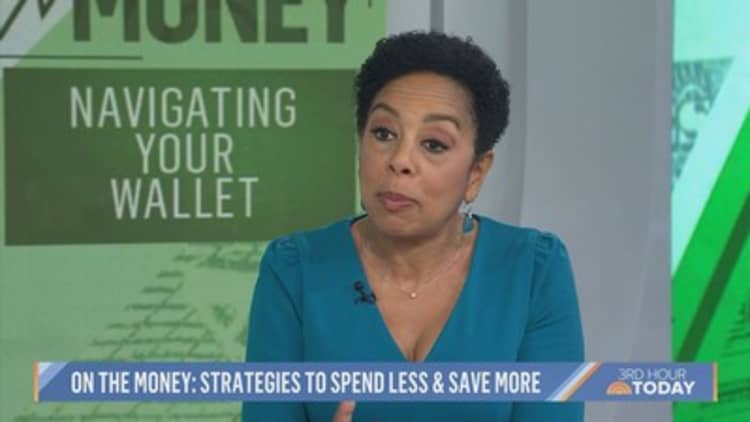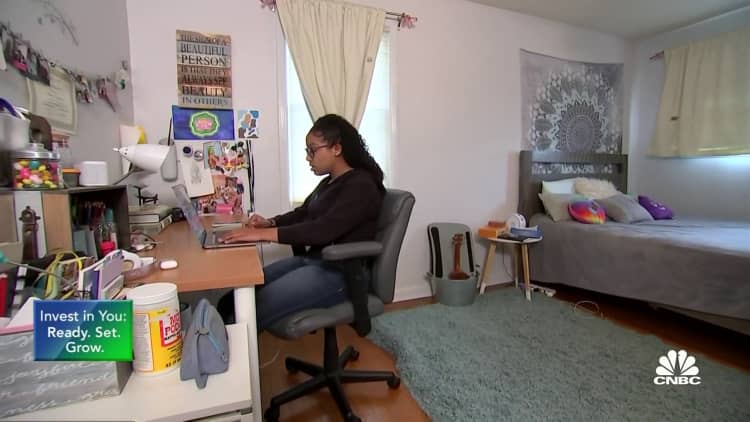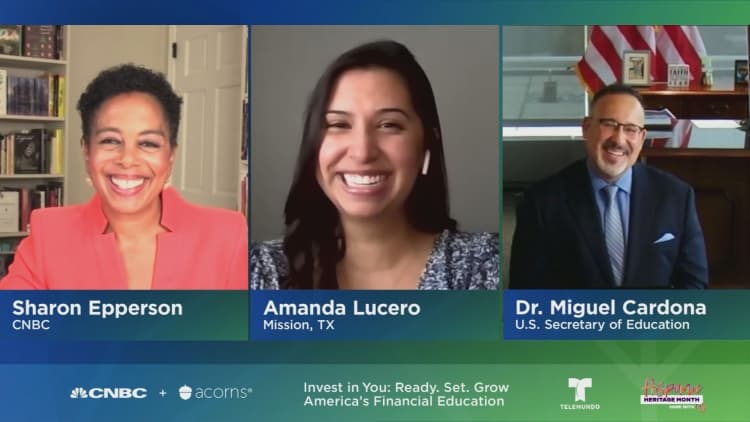Most adults make this money mistake, and it’s hurting them financially


These days, most Us residents are pressured about money. And still, when it arrives to budgeting, saving and handling personal debt, several get some uncomplicated fundamentals improper.
For instance, according to just one LendingTree study, 65{9f99fe44fce1aa3c813d0a0ce4da2fbea8a5a58e9d85c4a2927dd8140cb676b5} of Americans imagine carrying a smaller balance on their credit score card each month will boost their credit rating.
That is incorrect.
Not only can carrying a stability reduced your credit score score, but sky-superior yearly proportion costs also make credit playing cards one of the most pricey approaches to borrow cash.
When it comes to funds, the solutions are not often this “black and white,” mentioned Kia McCallister-Youthful, director of the nonprofit America Saves, an initiative of the Customer Federation of The united states.
More generally, Us residents are unsure, particularly when pervasive dollars myths get in the way of great credit routines.
More from Individual Finance:
62{9f99fe44fce1aa3c813d0a0ce4da2fbea8a5a58e9d85c4a2927dd8140cb676b5} of People in america are living paycheck to paycheck
How to prioritize retirement and emergency personal savings
New resource allows you play at repairing Social Safety woes
“In buy to locate a alternative, there demands to be more economic training and there also has to be a transform in how we approach cash,” McCallister-Young said.
Far too regularly, talking about finances is deemed taboo, she extra. When there is an important role for schools to play, a fiscal education and learning should really start out at residence.
“Begin chatting to your children about funds in an age-ideal method,” she encouraged. Numerous lessons are learned only by way of publicity. “Those people conversations are necessary.”

Private finance in faculties gains momentum
In the meantime, the craze toward in-school private finance classes is gaining steam.
In the last calendar year, 7 extra states needed superior university pupils to consider a private finance system ahead of graduating, bringing the complete to 18, according to the latest info from Next Gen Private Finance, a nonprofit focused on furnishing economical education and learning to middle and high university students.
In addition, there are 88 private finance education and learning expenditures pending in 28 states, in accordance to Future Gen’s monthly bill tracker.

A ‘wealth of evidence’ displays extensive-phrase rewards
Numerous studies present there is a powerful connection involving monetary literacy and financial properly-currently being.
Students who are essential to consider personalized finance courses setting up from a young age are far more possible to faucet decreased-charge loans and grants when it comes to spending for faculty and fewer probable to depend on private loans or significant-fascination credit rating cards, according to a study by Christiana Stoddard and Carly Urban for the Nationwide Endowment for Economical Schooling. (College students are also even additional very likely to enroll in college when they are aware of the financial assets accessible to support them pay for it.)
“Our results present that high faculty financial schooling graduation needs can significantly effects important student economic behaviors,” the authors reported in the report.

Further, pupils with a economical literacy program less than their belt have better ordinary credit scores and reduce personal debt delinquency rates as youthful grown ups, in accordance to info from the Fiscal Market Regulatory Authority’s Trader Education and learning Basis, which seeks to endorse economic education.
In addition, a report by the Brookings Institution found that teenage economical literacy is positively correlated with asset accumulation and net worth by age 25.
Amid adults, individuals with higher economic literacy locate it less difficult to make finishes meet in a typical month, are additional most likely to make mortgage payments in complete and on time, and less likely to be constrained by personal debt or be regarded as monetarily fragile.
They are also more probably to help save and strategy for retirement, in accordance to facts from the TIAA Institute-GFLEC Personalized Finance Index primarily based on research about quite a few many years.
“The prosperity of evidence just proceeds to improve,” Ranzetta explained.
‘The challenge is, it is really complicated’
To be guaranteed, the toughest portion of adulting carries on to be handling cash.
“The issue is, it really is complicated,” claimed Laurence Kotlikoff, economics professor at Boston College and president of MaxiFi, which performs to assess your paying out, conserving and insurance plan to make absolutely sure they match your way of living and amount of wealth.
Say, for instance, you are conserving for a down payment on a new home and you want to build a price range that also will take inflation and taxes into account, he spelled out: “No person can do this in their head.”
Some on the net instruments can assistance, Kotlikoff encouraged. “Use the engineering that’s accessible.”
“We have to transfer, as a job, from finding out errors to delivering responses, just like medical doctors prescribe medication.”






